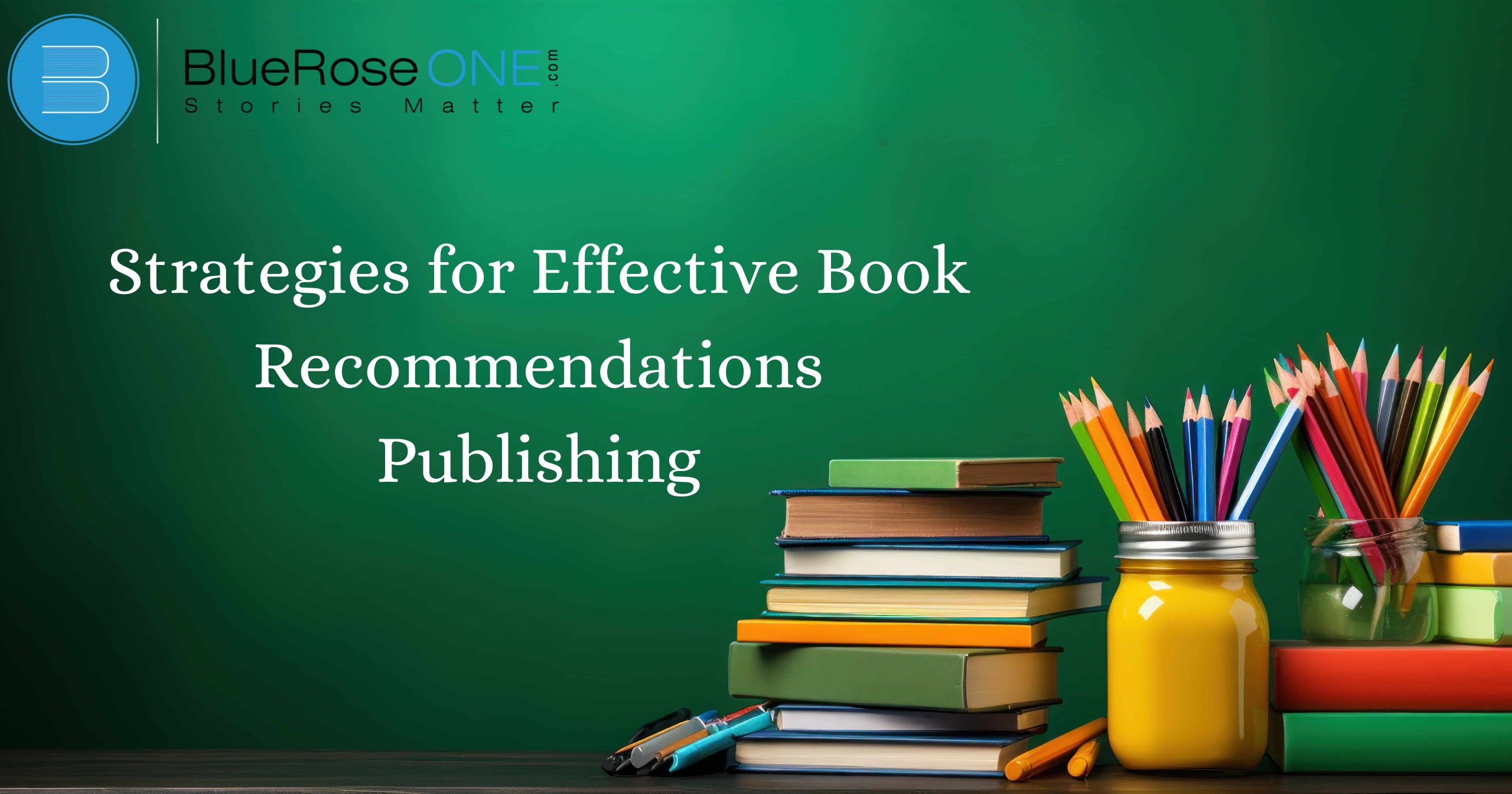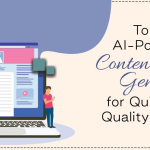In today’s digital age, where readers are inundated with countless options, effective book recommendations play a crucial role in the success of publishing ventures. Whether it’s promoting new releases, increasing sales, or fostering reader engagement, implementing the right strategies can significantly impact the visibility and popularity of books. This article explores various tactics to enhance book recommendations and drive growth in the publishing industry.
Understanding the Audience
Understanding the Audience is very crucial in crafting effective book recommendations within the publishing realm. Authors and publishers alike must delve into the intricacies of their target demographic’s preferences, interests, and reading habits.
By comprehending the audience’s diverse tastes and demographics, one can tailor recommendations to resonate deeply. Strategies encompass analyzing reader demographics, studying market trends, and leveraging data analytics to gain insights.
Moreover, fostering engagement through social media platforms and book clubs facilitates a deeper understanding of audience preferences. Ultimately, aligning recommendations with the desires and expectations of the audience is pivotal for success in the dynamic landscape of publishing.
Leveraging Data Analytics
When it comes to publishing, using data analytics is a crucial tactic for creating book recommendations that work. Publishers may precisely personalize suggestions by leveraging demographic insights, purchase trends, and reader interests through the utilization of data.
By applying sophisticated algorithms and machine learning methods, publishers are able to evaluate large datasets in order to identify patterns, predict reader preferences, and provide tailored book recommendations.
This data-driven strategy increases sales, fosters long-term client loyalty, and improves reader pleasure. To provide interesting and relevant book recommendations in a crowded market, publishers must grasp data analytics in an environment that is always changing.
You may also like: From Page to Sound: How Audio Books Have Transformed Reading
Curating Diverse Content
Curating Diverse Content is essential in crafting effective book recommendations within the publishing industry. To truly resonate with a wide audience, it’s crucial to embrace diversity in all its forms – from genre and subject matter to authorship and cultural perspectives.
By intentionally curating a diverse range of content, publishers can offer readers a richer, more inclusive selection of books that reflect the complexity and richness of the world we live in.
This strategy not only broadens readers’ horizons but also fosters a more equitable and representative literary landscape. In a rapidly evolving industry, prioritizing diversity ensures that book recommendations remain relevant and impactful.
Engaging User-Generated Content
Engaging User-Generated Content is a pivotal strategy in modern publishing for effective book recommendations. Leveraging the power of user-generated content not only fosters community involvement but also enhances credibility and trust.
Encouraging readers to share their favorite reads or reviews on social media platforms creates a dynamic conversation around books. Interactive features such as book clubs, author Q&A sessions, and reader polls further enrich the experience, fostering a sense of belonging and shared enthusiasm among readers.
By embracing user-generated content, publishers can tap into the collective wisdom of their audience, driving engagement and ultimately leading to more impactful book recommendations.
You may also like: International Publishing: Expanding Your Reach Beyond Borders
Collaborating with Influencers
In publishing, collaborating with influencers is an essential tactic for successful book recommendations. Influencers have a great deal of power over customer preferences and purchase decisions in the current digital era.
Publishers can boost book recommendations by collaborating with influencers whose interests match the genre or theme of a book.This allows publishers to reach their engaged audiences.
Making use of influencers’ legitimacy and audience can boost a book’s visibility, create talk about it, and boost sales. Real partnerships where influencers have a true connection to the content can have a significant impact by building a community of ardent readers who are excited to find new books.
Enhancing User Experience
Enhancing user experience in book recommendations is pivotal for effective publishing strategies. By employing personalized algorithms and machine learning, publishers can tailor recommendations to individual preferences, boosting engagement and satisfaction.
Implementing intuitive user interfaces and seamless navigation further enriches the experience, making it effortless for readers to discover new titles aligned with their tastes. Incorporating social features such as user reviews and recommendations from peers fosters a sense of community and trust, enhancing the overall browsing experience.
Continual refinement based on user feedback ensures that recommendations remain relevant and compelling, ultimately driving increased book sales and reader loyalty.
Providing Value-Added Services
Offering Value-Added Services is essential when it comes to book suggestions in the publishing industry. In order to properly accommodate the wide range of tastes among readers, publishers must use tactics that extend beyond simple recommendations.
Personalized recommendations based on readers’ interests, demographics, and previous reading habits are included in value-added services. To create customized book lists, this entails utilizing sophisticated algorithms, utilizing data analytics, and comprehending market patterns.
The reading experience is further improved by providing extra content like discussion guides, author interviews, and special access to pre-release materials. Value-added services should be given priority by publishers in order to build stronger relationships with their readers, encourage adherence, and increase book sales.
You may also like: How to Make an Impact as a Book Author
Monitoring and Adapting Strategies
In the dynamic landscape of publishing, effective book recommendations rely heavily on monitoring and adapting strategies. Monitoring involves keeping a keen eye on market trends, reader preferences, and emerging technologies.
By closely tracking these factors, publishers can gain valuable insights into what resonates with audiences and adjust their strategies accordingly. Adapting strategies involves being flexible and responsive to changing circumstances, whether it’s experimenting with new promotional tactics, leveraging social media platforms, or refining algorithms for personalized recommendations.
Success in book recommendations hinges on the ability to continuously monitor the evolving landscape and adapt strategies to ensure relevance and resonance with readers.
Conclusion
In conclusion, implementing effective strategies for book recommendations is essential for success in the publishing industry. By understanding the audience, leveraging data analytics, curating diverse content, and engaging with user-generated content and influencers, publishers can enhance the visibility and popularity of their books. Additionally, by focusing on enhancing the user experience, providing value-added services, and monitoring and adapting strategies, publishers can drive growth and achieve long-term success in the competitive publishing landscape.also
Frequently Asked Questions
Book recommendations help increase book sales, foster reader engagement, and build brand loyalty for publishers.
Data analytics enables publishers to analyze reader preferences and behavior to offer personalized book recommendations.
Publishers can encourage user-generated content by soliciting reviews and ratings, implementing social media strategies, and collaborating with influencers.
Curating diverse content ensures that publishers cater to the varied interests and preferences of readers, expanding their audience and driving sales.
Publishers can monitor the effectiveness of their strategies by analyzing performance metrics such as click-through rates, conversion rates, and user engagement.
















